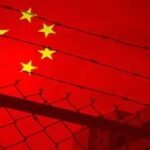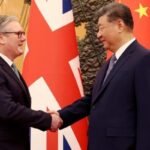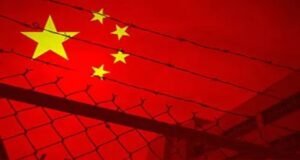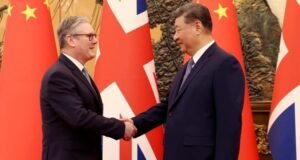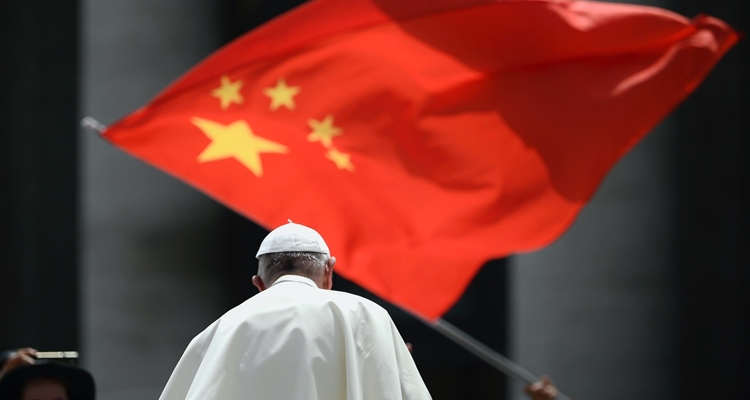
At a news briefing, the Chinese government was asked to comment about the death of Pope Francis. The foreign ministry spokesman complied.
Constructive, beneficial
“China expresses condolences for the passing of Pope Francis. In recent years, China and the Vatican have maintained constructive contacts and carried out beneficial exchanges. China is willing to work with the Vatican to promote the continued improvement of China-Vatican relations.”
Beneficial exchange: the CCP makes demands, the Vatican surrenders.
The Time reporter reports that according to experts, the one-day delay in China’s sending its condolences is indicative of strained ties between the Church and China (April 25, 2025).
What strain? The Pope did everything or practically everything that the Chinese government could have wanted with respect to bishops and the Catholic Church, virtually signing over the institution as it exists within China. The relationship should have been on easy street.
Of course, it’s always a horrific strain dealing with the Chinese Communist Party. Perhaps Party officials feel, in turn, that it’s always a strain to have to ride roughshod.
As Pope, Francis worked on repairing this rocky relationship by increasingly engaging with Beijing, which is known for imposing restrictions on religious expression across faiths. Critics from both inside and outside the Catholic Church questioned Francis’ diplomatic attempts, but he emphasized the need to improve relations. Speaking to the Asia Times in 2016, Francis expressed his “admiration” for China and even extended greetings to President Xi Jinping, adding: “The Western world, the Eastern world, and China all have the capacity to maintain the balance of peace and the strength to do so. We must find the way, always through dialogue; there is no other way.”
Experts tell TIME that Francis’ passing may lead to some changes in the Vatican’s approach to China, though they add that it would be in the world’s best interest for the new Pope to continue outreach efforts.
A few weeks ago, The Irish Times noted: “After the agreement’s renewal last year [the agreement to let the Chinese Communist Party run the Catholic Church, appoint bishops, and ignore the Pope], the Pope said ‘the results are positive, and we are working with goodwill’, adding that he was pleased with the Vatican’s dialogue with China.”
We also shouldn’t neglect this Francis fatuity: “I don’t want to describe China as antidemocratic because it is such a complex country, with its own rhythms.”
Ambiguous and silent
The Irish Times cited one Father Sergio Ticozzi, a Hong-Kong-based scholar of the Catholic Church in China. He says that the Vatican has told priests in China’s underground church—which struggles to continue independently despite the Party’s disapproval and harassments—that they shouldn’t be forced to formally register with the Chinese state. But China’s underground priests are pressured to register all the same.
Ticozzi: “The Chinese authorities want clearly to eliminate this section of the church, and exploit the ambiguous and silent attitude of the Vatican to achieve their objective. They openly make use of the Sino-Vatican agreement for this purpose: they do not show great concern about providing bishops for the more than 30 vacant dioceses, but prefer to propose their own episcopal candidate for dioceses which already have unofficial bishops, in order to force the Vatican to order the latter to accept the government solution, which can be rather unjust.”
One of Time’s experts is Michel Cambon at the National University of Singapore, whom it quotes as insisting that “You cannot not have a working relationship with China.” You can certainly skip the working relationship if it accomplishes nothing but providing an implied blessing for Party control and for repression of Catholics inside China.
Time magazine explains some of the background:
Catholicism is one of five official religions that the Chinese Communist Party recognizes, but Catholics are only legally allowed to practice a version of the religion monitored by the state….
Also:
The [Chinese Catholic Patriotic Association] is meant to ensure that the practice of Catholicism aligns with Xi’s “sinicization” of religion—which forces religions to incorporate the CCP’s political agenda into their ideologies and practices. And, while the Pope generally holds authority over bishop appointments worldwide, the CCPA and the Bishops’ Conference of the Catholic Church in China (BCCCC), another government organization, made these appointments in China—without Vatican approval….
And:
Papacies as far as Pope John Paul II’s have tried to mend the relationship, but Beijing’s conditions for full reconciliation with the Vatican reportedly include breaking off ties with Taiwan and vowing not to interfere in how the CCP runs its Catholic Church—including bishop appointments—which the Church has not agreed to.
Perhaps Pope Francis could never have interfered with the CCP’s interference with the Catholic Church beyond clearly, repeatedly, and publicly objecting—and also refusing to pretend to extract phony concessions in phony deals. But this would have been better than submitting to the Party’s manipulations.
Also see:
PBS News Hour: “Vatican documents show secret back channel between Pope Pius XII and Hitler”

